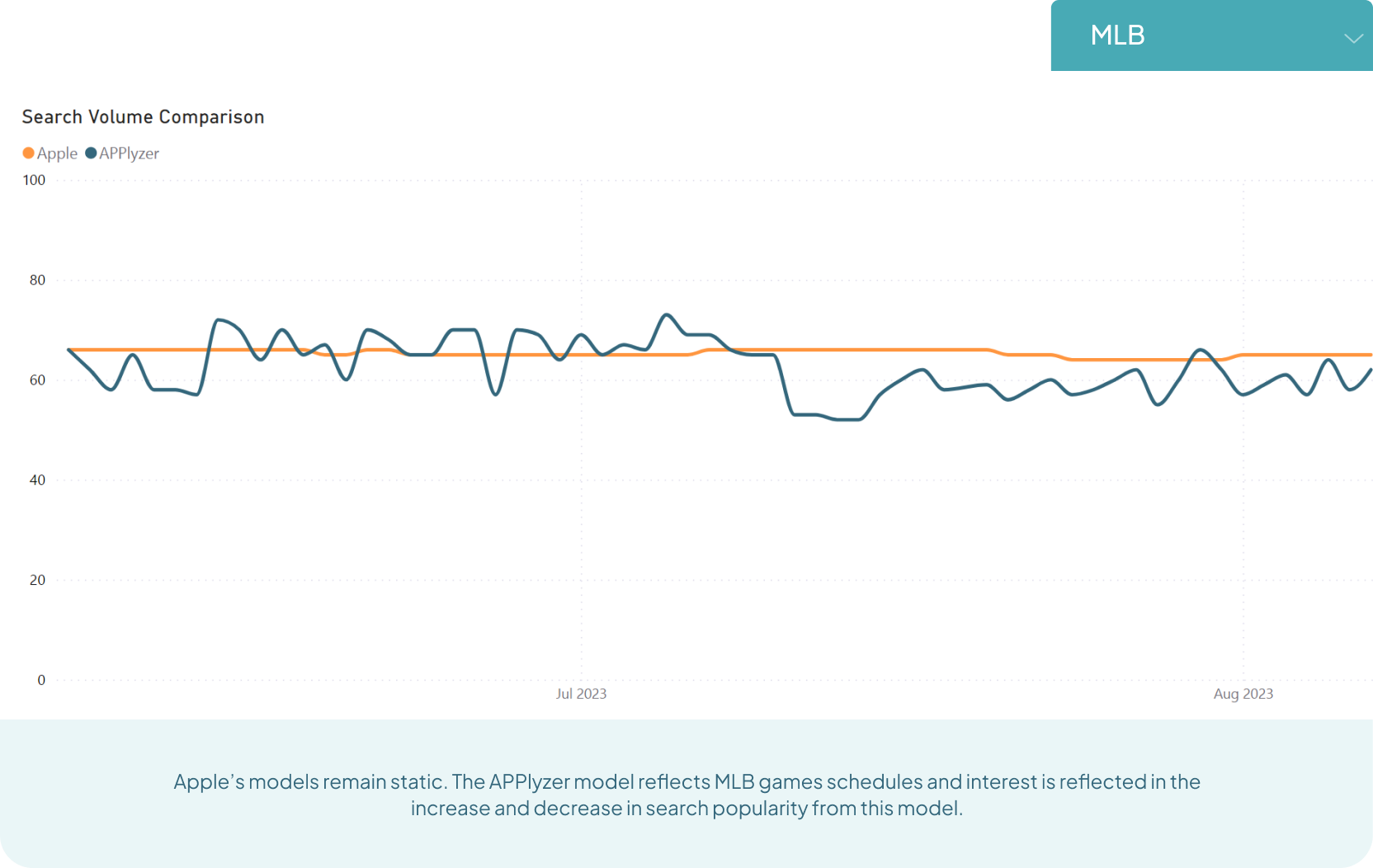🚨 What’s Going On With Apple’s Search Popularity Scores?
If you’ve been tracking keywords in Apple Search Ads lately, you’ve probably noticed something strange.
Since early October, the Apple Ads API has been showing a popularity score of “5” — the lowest possible value — for thousands of keywords that previously had much higher scores.
And no, it’s not just you. This isn’t a bug in your favorite ASO tool like in Apptweak, Sensortower, Mobileaction, Foxdata and many more— it’s happening everywhere, across all platforms and markets. Keyword analysis and tracking have suddenly become a lot less reliable.
But APPlyzer can help.
🧭 Apple’s New “Monthly Search Term Rank Report”
At the same time, Apple quietly rolled out a new feature inside the Apple Ads dashboard — the Monthly Search Term Rank Report, located under Insights.
Here’s what we know so far:
- 📅 It shows Search Popularity by country and month, with up to 15 months of history
- 🔢 It only includes terms with SAP ≥ 37 (so low-volume keywords are hidden)
- 📉 Each account can see a maximum of 7,500 rows
- 🧪 It’s still in beta, and some parts (like charts) aren’t fully functional yet
From what we can tell, this report uses monthly aggregated data instead of daily search volumes. That could mean Apple is shifting toward a new ranking system based on broader, longer-term trends — not real-time keyword activity.
🍏 Quick Refresher: What Is Search Popularity?
If you’re new to ASO or Apple Search Ads, here’s the basics.
Search Popularity (SAP) measures how often users search for a specific keyword in the App Store. It’s shown on a scale from 1 to 5, where 5 means the term gets a lot of search volume.
ASO managers rely on this number to:
- Understand which keywords are worth targeting
- Optimize bids and budgets
- Improve app visibility and reach
But since September 29, 2025, things have changed drastically. Keywords that used to sit comfortably in the 20–60 range are now almost all showing a flat “5.”
💡 Why APPlyzer’s Model Still Works (and Works Better)
Here’s the good news — while Apple’s data has gone static, APPlyzer’s search score model keeps running strong.
Unlike Apple’s now-flawed system, APPlyzer uses its own independent and dynamic model to calculate search scores. It doesn’t rely on Apple’s API values, which means your data stays stable and accurate — even when Apple’s doesn’t.
Our model adapts in real time to actual user behavior, market trends, and event-driven changes (like spikes during MLB games or seasonal trends).

Just look at the chart above 👆 — Apple’s data line is flat, while APPlyzer’s curve moves naturally, following real-world event activity.
That’s why APPlyzer’s keyword data stays reliable, responsive, and actionable, even when Apple’s official numbers hit a wall.




